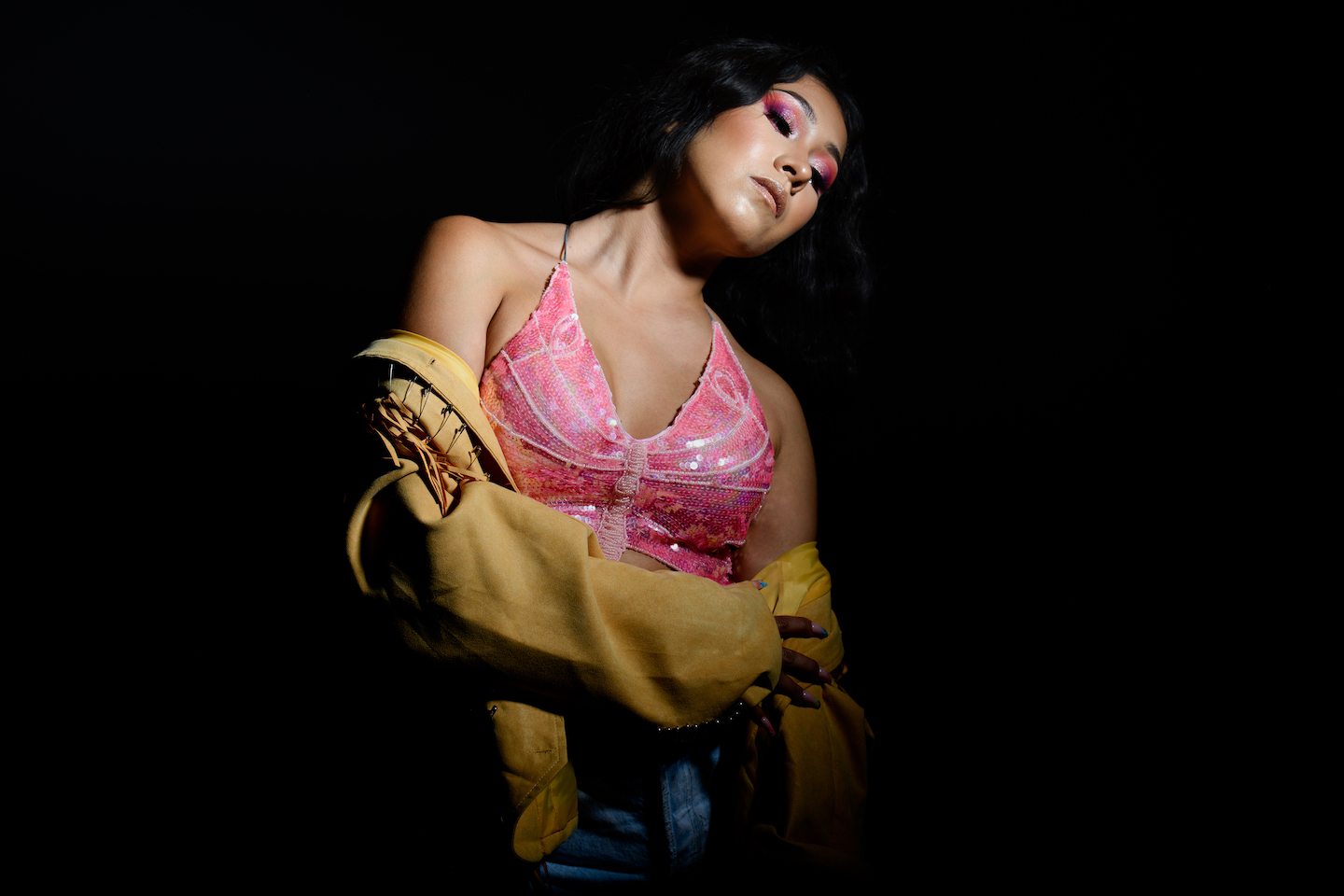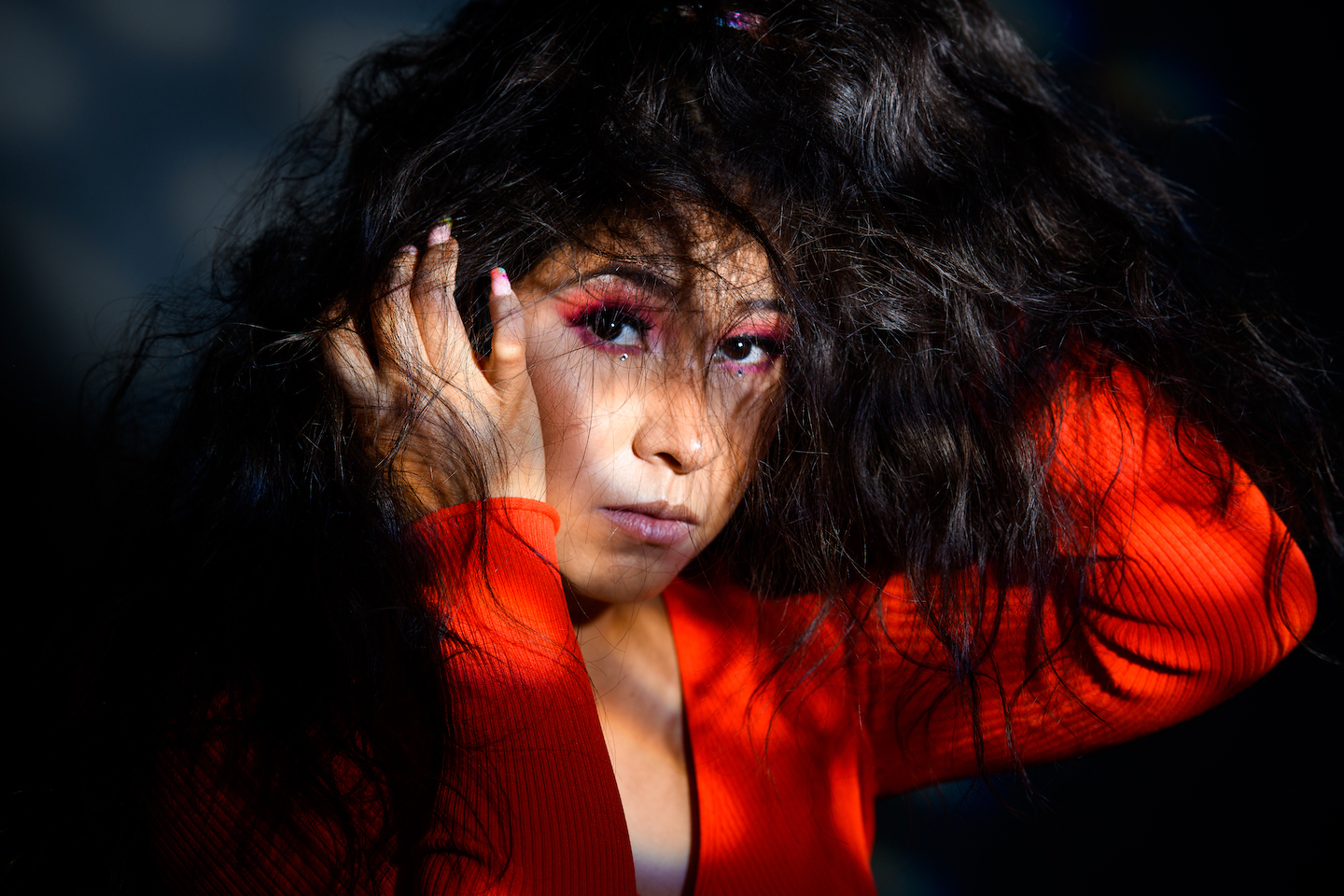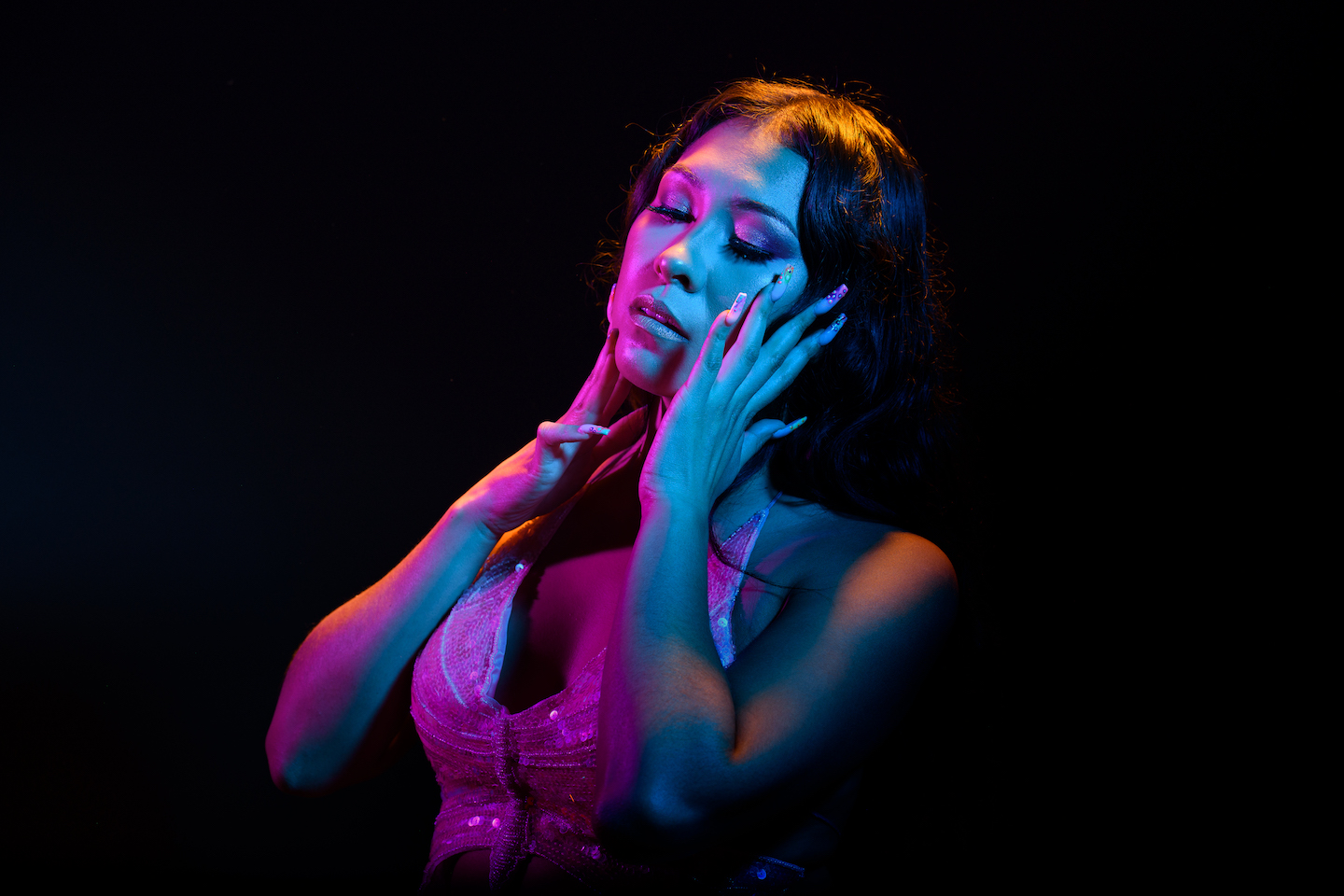Denver’s music scene, much like the rest of the world, has been increasingly receptive to Latin music and artists during the last decade. On a global scale, artists like Bad Bunny and J Balvin are leading the charge in popularizing Latin music in America and Europe. On a smaller scale, there are local Latin artists that are contributing to the culture in important ways. Lolita — a rising star in Denver’s Latin music scene — is one such artist. Her deep love for poetry, self-awareness and social justice synthesize in her music, and makes her a force to reckon with.
Growing up in Denver’s Five Points neighborhood, Lolita — whose real name is Lolita Mendoza Castañeda — was exposed to music at a young age. Some of her earliest memories are of sunrises accompanied by a Mexican-morning soundtrack curated by her father, who would play his favorite Mexican tunes on his guitar every morning. These moments are dear to Castañeda, who remembers being inspired by the Mexican folk music that shaped her father, which he shared with her throughout her childhood.
At a young age, her love of music was outweighed by her passion for poetry, which has been a crucial part of her life for as long as she can remember. In her teen years, she began transitioning from poetry to songwriting. She explained, “In high school, I started to ditch a class to write poetry. Eventually, that kind of started turning into rapping. I started using beats and it became this songwriting thing.”
Although she originally planned to go to college to study creative writing, her intuition took over when she sat down to officially declare her major at CU Denver.
“Because the poetry was so important to me, when I graduated [high school], I went with my mentor to try to get into school at CU Denver. We went to the admin office and they asked me what I wanted to major in. To my surprise and her surprise, I just said ‘music.’ It just kind of came out and we both looked at each other like, ‘that just happened.’ It was great, and I just went with the flow of it. I was like, this happened for a reason.”
While pursuing a music business degree at CU Denver, she crossed paths with Owen Trujillo — a songwriter originally from Zacatecas, Mexico, with a natural inclination for rapping. Trujillo, a founding member of the Denver-based Latin hip-hop group 2MX2, was impressed with Castañeda’s songwriting abilities, and the two formed a friendship rooted in musical collaboration and mutual admiration that eventually led to Castañeda joining 2MX2, who she still performs with today.
In 2015, The Flobots — a Colorado-based band best known for their smash single, “Handlebars” — invited 2MX2 and Castañeda to perform and lead workshops for marginalized communities in the Colorado public school system. Castañeda remembers this experience fondly, although, at times, she struggled to accept her new role as a musical mentor for the youth. Recalling that time in her career, she explained:
“I was still in a very vulnerable place with my art. I didn’t believe in myself yet. So being on that tour with such amazing groups, 2MX2 and The Flobots, I was just like, wow, how did this happen? How can I shine amongst so many shiny things and shiny people to the point where I would put glitter on my face, to literally shine. But I love that because it was part of my journey. To move through that space and to realize eventually that all I could do is be myself. And in being myself, I’m already winning because there is nobody who is me and there is nobody who is you.”
As a Latina woman living in America, being confident in herself hasn’t always been easy. Growing up, she remembers being shamed for speaking Spanish around her peers. Although American society has largely evolved to be more accepting of other cultures, Latin-American youth often still struggle to feel accepted among their peers. Thankfully, music has a special ability to bridge that cultural gap.
The sound of music is universal. Each note conveys emotion and empathy. That’s the beauty of music: you don’t have to understand the lyrics to understand the message. During one of her visits to a Colorado public school during her tour with the Flobots and 2MX2, she experienced music’s connective tissue first hand.
“There were times where the music would literally bring the whole room together. There was one moment on that tour where we were sitting in a circle and I was doing my best to try to connect with these people. I was like, you know what, let me think of a song that brought me some connection when I was young, and I just started singing, ‘this little light of mine, I’m gonna let it shine,’ and everybody joined in. I had goosebumps. It was such a simple moment yet we all could get together and sing the lyrics to that.”
Moments like this gave Castañeda confidence that she was on the right path and helped her overcome the imposter syndrome she’d struggled with during the beginning of her musical career.
That tour was seven years ago. Since then, she’s built quite a reputation among Denver’s Latin music community, receiving praise from local Latin-indie band The Mañanas and opening for iconic Denver bands like iZCALLi and Los Mocochetes. Unfortunately, she doesn’t always get the recognition she deserves as people often confuse her for a girlfriend of the band instead of an artist.
This is a common problem in the music industry — casting feminine artists aside in favor of praising their masculine counterparts on stage, often completely neglecting the major artistic contributions of female singers, bass players and songwriters.
Additionally, Castañeda feels the pressure to live up to the reputation Latin women have in North America — strong and ever-present.
“In our culture, the Latina women have always been seen as very strong, like they can handle a lot. Growing up, a lot of us were told ‘you’re strong, you’re the woman here. You can do all of this. You can handle all of this. Why? Because your mom did it and your grandma did it and we’ve all done it.’ So we hear this and people just assume this about Latina women. Yeah, they are very strong. They can handle it. They can cook, they can clean, they can go work, they can come back and do the same thing and take care of you and take care of themselves. But sometimes we forget that the self-care part is super important too.”
Recently, Lolita has been paying special attention to her own self-care essentials, which is evident on her most recent single “Sober Without Your Love,” a catchy dance-pop reggaeton record that sees Lolita confronting her emotions about a fading relationship. After putting up a front for her lover’s sake, she finally decided to air out her feelings and end the romance that was no longer healthy for her.
“Heartbreak is tough and I think a lot of us go through it and sometimes we go through it alone. We don’t talk about it out loud. We just deal with it in our own way. Sometimes it’s so painful that we don’t necessarily deal with it. We just allow time to happen. For me, ‘Sober Without Your Love’ was like revisiting those places and the heartbreaks that I’ve gone through and the beauty that came out of those experiences.”
Although Lolita is no stranger to love songs and heartbreak, “Sober Without Your Love” is a slight deviation from the politically-charged music she has released over the years, mainly “Todo Mi Gente” and 2MX2’s “Piraña,” two Spanish anthems that speak on gun violence and police brutality.
At the end of the day, Castañeda is more than a Latina musician. She’s more than the political music she makes, more than the heartbreaks she’s experienced and more than the strong woman society expects her to be. Yes, she is all of those things. But she is also a human being, who, just like everyone else, experiences highs and lows, occasional feelings of doubt and the euphoric highs of love in all forms — self-love, romantic love and love for her community.
All photography by Jason Carncross










